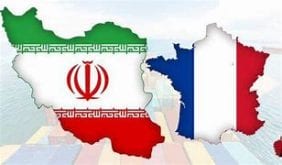iranintl – The Israeli Defense Forces announced that they attacked targets in Syria early Saturday, responding to fire from the country, where Iran-affiliated forces are active.
The IDF also said it struck Hezbollah “terror infrastructure” in southern Lebanon, including a launch site used by the Iran-backed group following a number of cross-border attacks earlier Friday.
Arab media also reported that unidentified aircraft attacked Iran-linked targets in eastern Syria on Friday.
Local sources reported multiple casualties with different figures, according to some Arab media. Lebanon’s Al Mayadeen said some casualties were Lebanese. Al Arabiya’s Arabic television quoted a “security source” to report that eight trucks entering Syria from Iraq had been destroyed.
However, there has been no word from the United States about an attack. Washington announces its air strikes on Iran-affiliated targets, unlike Israel that usually prefers to say nothing. This in turn led to some observers saying that perhaps the reported attack allegedly on weapons depots and trucks carrying Iranian supplies, were conducted by Israel.
Whether the air strike is confirmed or not, tensions in the region are rising, with more military action taking place on the Israeli-Lebanese border between the Iran-backed Hezbollah and the Israeli army.
On Friday, Israel conducted a series of extensive strikes against Hezbollah targets in Lebanon, attacks which have impacted the Iran-backed group’s positioning near the border.
“We continue intensive strikes to hit Hezbollah’s deployment close to the northern border,” military spokesman Rear Admiral Daniel Hagari said in a televised statement. “It no longer looks as it did on October sixth, nor will it.”
Hezbollah has been trading fire with Israel at the border since its Palestinian ally Hamas attacked Israel on October 7, igniting a conflict that has drawn in the heavily armed group and other Iran-aligned factions across the Middle East.
But the violence has largely been contained to areas at the border, shaped by what observers have called unwritten rules of engagement between adversaries that have long threatened each other with catastrophic damage in the event of war.
Israel has said it is not seeking to open a front in the north. Israeli Prime Minister Benjamin Netanyahu has warned that Beirut would be turned “into Gaza” if Hezbollah started an all-out war.
Hagari said the targets of the recent air, tank and artillery strikes included launch pads, military compounds and militant squads.
At the same time, Iran is also apparently not keen to see a full war for its most important proxy force in the region, while Tehran faces a serious economic crisis and has to foot the bill if Hezbollah and its Shiite supporters in Lebanon sustain major losses.
However, Iran continues to use its proxy forces in Syria, Lebanon and Yemen to attack US and international interests, with more than 100 drone and rocket attacks against US forces alone. The Yemeni Houthis have also partially paralyzed the Red Sea with attacks on international shipping.
Many former US officials and Republican lawmakers in recent days have criticized what they say is President Joe Biden’s leniency on Iran and have demanded a tougher approach. Some like Senator Lindsey Graham and former national security advisor John Bolton have gone further and called for directly targeting Iran.
“It’s clear Tehran does not feel pressured enough to refrain from force,” Bolton wrote in an op-ed for the Telegraph.” I believe that only when Israel, America, Britain, and others show they possess the resolve and capability to impose significant costs on Iran as punishment for such acts, will they persuade the ayatollahs to halt further attacks.”
Iran denies any role in such attacks, maintaining that all operations are planned and executed independently by its affiliated armed groups (or the Resistance, as the Islamic Republic officials call it).
Iran, for its part, has put on a visibly combative tone, ridiculing warnings and ultimatums, accelerating its enrichment program, even threatening to turn Tel Aviv to ruins, ‘“if anyone dares attack Iran.”
Many fear that the hardening of language on all sides might lead to direct confrontation and eventually an all-out war.
Former Israeli PM Naftali Bennett wrote an op-ed in Wall Street Journal on Friday, calling on the US and Israel to “take on Iran directly.”
“Iran is a terror octopus,” Bennett said, “its arms —Hamas, Hezbollah and the Houthis— are sowing chaos and terror across the world. It’s time for the US and its allies to target its head, Tehran, and bring down its regime.”
 Shabtabnews In this dark night, I have lost my way – Arise from a corner, oh you the star of guidance.
Shabtabnews In this dark night, I have lost my way – Arise from a corner, oh you the star of guidance.



